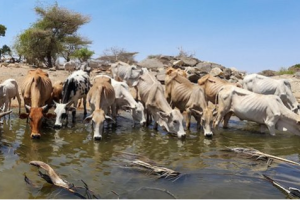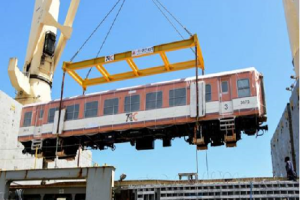
Fuel prices have risen once again in Kenya after the government partially removed subsidies that cushioned consumers from the global hike in oil prices.
The energy regulator said late on Wednesday night that it had removed the subsidy for super petrol while retaining a smaller subsidy for diesel and kerosene.
At the new prices, super petrol – mostly used by private motorists – will now cost about 179 shillings ($1.5) a litre, up from 1.3 dollars while diesel, which is used by transporters and industries will cost about 1.4 dollars in the capital, Nairobi.
Kerosene, which is mainly used by low-income households for cooking and lighting, will cost about 1.2 dollars a litre.
It comes after President William Ruto called fuel and food subsidies “costly and ineffective”, in his inaugural speech, Tuesday.
Ruto said Sunday that Kenya was “in a deep economic hole” and repeated his pledge to lower the cost of living as a priority upon taking office.
The East African political and economic powerhouse is reeling from a once-in-a-generation drought and inflation is at five-year highs. In June, the World Bank projected Kenya’s (GDP) would grow by 5.5 percent in 2022, a moderation following last’s year recovery when the country’s economy grew by 7.5 percent
Kenya’s newly elected president William Ruto said that climate change will be key to the government’s agenda and made an ambitious pledge to ramp up clean energy and phase out fossil fuels for electricity by 2030
In our country, women and men, young people, farmers, workers, and local communities suffer the consequences of climate emergency,” said President Ruto in his inauguration speech on Tuesday at Nairobi’s Moi International Sports Complex.
“We must act urgently to keep global heating levels below 1.5 Celsius, help those in need, and end addiction to fossil fuels,” he added, echoing calls by the United Nations Secretary-General to cut the world’s reliance on coal, oil, and gas.
Taking cues from the country’s revised commitments on climate change submitted to the U.N., known as nationally determined contributions, President Ruto promised the country will have a full and just transition to electricity exclusively produced by solar, wind, and geothermal energy by 2030 that will ensure all communities benefit from the move.
“Kenya is on a transition to clean energy that will support jobs, local economies, and sustainable industrialization,” Ruto said. “We call on all African states to join us in this journey. Africa can lead the world. We have immense potential for renewable energy. Reducing costs of renewable energy technologies make this the most viable energy source.”
The move, although welcome, might have too tight of a deadline given that the current devastating drought in Africa severely undermines hydropower, according to Evans Mukolwe, Kenya’s former Meteorological Department head. He added that unless deliberate efforts are made to increase geothermal and solar power, the President’s new goal may be difficult to achieve.
Ruto, who won the August presidential elections, was sworn in as Kenya’s fifth President on Tuesday. He succeeds President Uhuru Kenyatta who stepped down after serving the constitutional two-term limit.
President Ruto will also take over Kenyatta’s position as chair of the Committee of African Heads of State on Climate Change, which is the continent’s highest decision-making body on climate issues.
During the forthcoming U.N. climate conference in Sharm el Sheikh in Egypt this November, Ruto said he will lead the continent in negotiating the delivery of finance and technology to the continent to support nations dealing with the effects of climate change.
THE ETHIOPIAN HERALD FRIDAY 16 SEPTEMBER 2022




